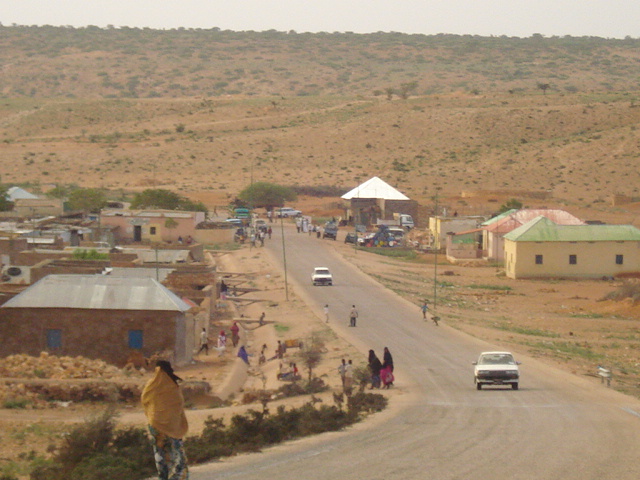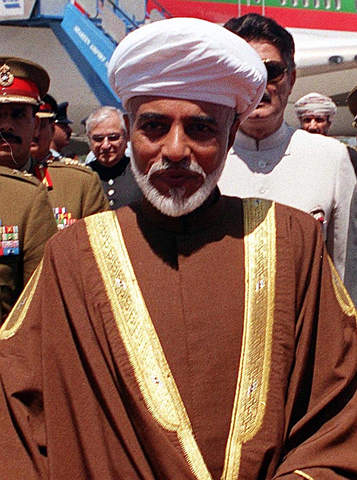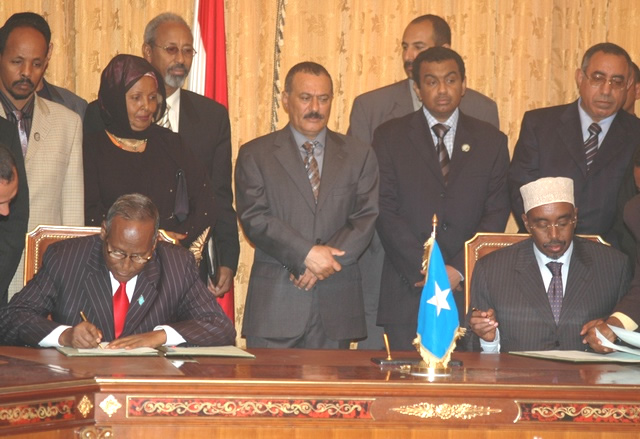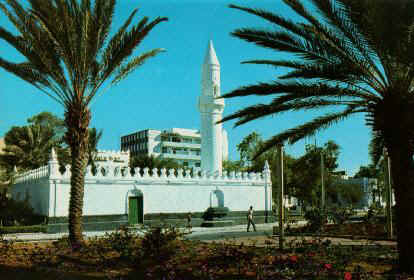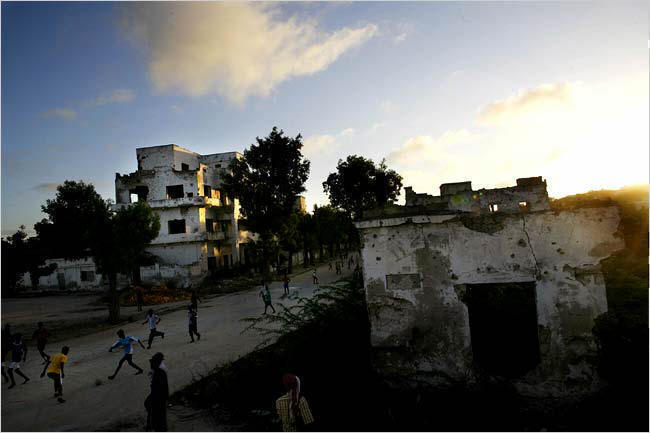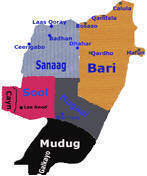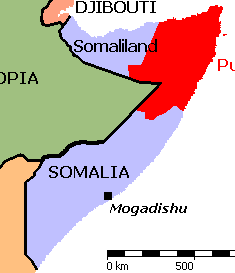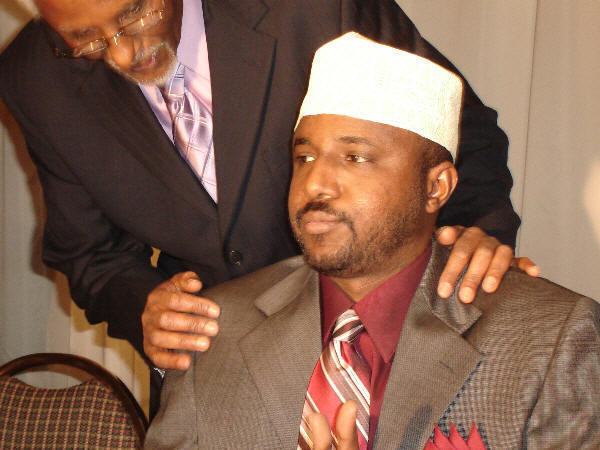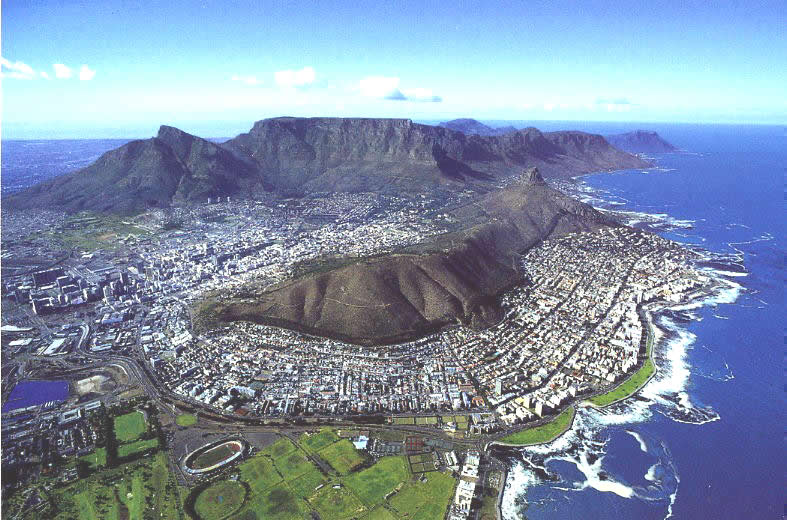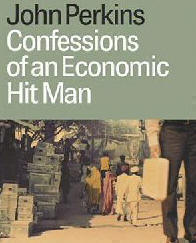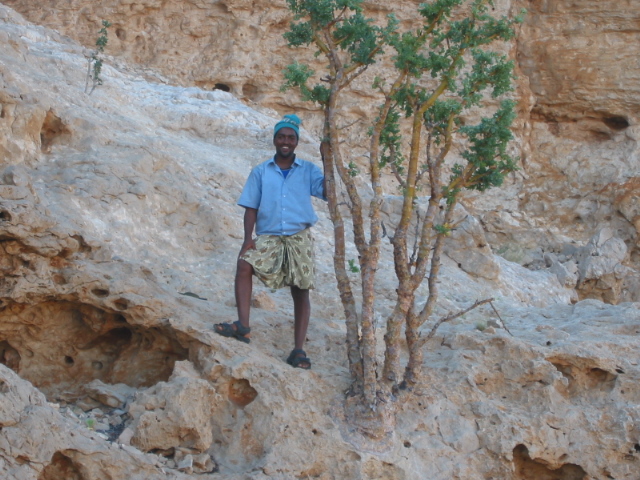
The Mushrooming of Cabbie Statelets
Biyokulule Online
December 02, 2010

Introduction
Many Somali cabdrivers in the West, who are tired of the 12-hrs shift work with less benefits, have lately made career by flattering their pride from the dream of creating their own mini statelets, throwing the already beleaguered nation into chaos.
These cabdrivers` dreams have found a �safe haven� in the hearts of their kinfolk. All of a sudden, many cabbies from the Diaspora found their political sense of spectacle. They crafted their fiefdoms and found a crowd of young people to rally their cause.
The dreaming cabbie, of course, is taking advantage of the Western-backed Transitional Federal Government in
While Mogadishu`s dark hours is undermining the nation-state, the rest of Somalia is also plunging into cabbies` wretched experiments. Cabbie-turned-politicians want their statelets now and �freedom from the
Taxi! Range gets a fair go in Puntland
MARK HAWTHORNE
The Age
December 15, 2009
YOU have to admire some of those punters in Range Resources who just happened to get lucky again, this time thanks to a
Range is the mineral explorer that struck a deal with the pirate state of Puntland in
Just how the company plans to sail its promised oil through seas patrolled by heavily armed pirates remains something of a mystery.
There have been more downs than ups for shareholders, but times have been especially tough of late following a change of leadership in Puntland.
In January, former La Trobe University PhD candidate and part-time Silver Top Taxis driver Abdirahman Mohamed Farole, 63, became president of Puntland.
Farole, who has spent much of the past 10 years living in Melbourne`s northern suburbs, has been critical of Range`s dealings in his homeland, and the company`s share price slipped on news of his election win this year. Until early last week, that is.
About a million shares a day have been traded in Range over the past month, at about 3.5� a share.
But the excitement began on Tuesday when about 11 million shares changed hands on one of the company`s biggest days of trading this year.
On Wednesday, trading volumes touched 5 million, with Range creeping up to 3.7� a share, before it was put in a trading halt on Thursday morning.
The news? A peace deal has been struck with the former
The ASX was informed yesterday that Range, its joint-venture partner in Somalia, Africa Oil, and the Puntland state of Somalia have agreed to amend the terms of the existing production sharing agreements that were made for the Dharoor and Nugaal Valley exploration areas.
In a nutshell, the exploration licences on those blocks were due to expire next month, but have been extended to January 2011. Africa Oil, which owns 65 per cent of the JV, will also be allowed to drill two exploratory wells. In return, Range and Africa Oil will return 25 per cent of the area they have rights to.
Range soared 24 per cent on the news, opening at 4.6� a share, and an astonishing 49 million shares changed hands � the biggest single day of trading in Range since April 2007. It pays to listen to your cabbie.
Property comeback
CITY property has been a tough investment this year due to the global financial crisis. Several listed property funds have teetered on the brink as inner-city property prices slid.
Multiplex Prime, for one, had millions of dollars wiped from its portfolio, breached its loan-to-value ratios with its financiers, and then had Nicholas Bolton and Daniel Grollo making separate plays for control.
The worst, it seems, is over, and hard-hit super funds are leading the charge back into the market. Melbourne-based Cbus Property has just entered into an agreement with St Hilliers Property to develop a $150 million residential project in Darlinghurst, in inner
Cbus Property is a wholly owned subsidiary of Cbus, the super fund for the construction and building industry, so in a nice twist, building industry workers are funding building activity.
Cbus, which has $13 billion in funds under management, 550,000 members and more than 60,000 participating employers, has been investing in listed funds and direct deals of late.
Against that backdrop is some consolidation. Last month, Mirvac paid $362.3 million to buy back the remaining shares in Mirvac Real Estate Investment Trust.
Challenger Financial last week put forward a $152.63 million deal for one of its related funds, Challenger Kenedix Japan Trust, which owns shopping centres in
M&A at Mallesons
IN YET another sign of a promising 2010, top-tier legal firm Mallesons Stephen Jaques has announced that one of the country`s leading mergers and acquisitions lawyers, senior partner Tim Bednall, will take over as chairman.
Bednall, 49, has advised on several M&A deals in recent years, and his clients have included Westpac, BG Group, Xstrata, Stockland and the Australian Securities Exchange. He is also a specialist in competition law and has advised government and foreign clients in competition law and policy.
Sydney-based Bednall will replace Frank Zipfinger.
The outgoing chairman highlighted Bednall`s contacts in the corporate world as one of his strengths.
The return of M&A deals next year seems to be a common theme over lunch up and down
�I think we will continue to see difficult market conditions, but I think things will look up during the year,� he said.
� 2009 Copyright John Fairfax Holdings Limited. www.theage.com.au
Back From the Suburbs to Run a Patch of
By JEFFREY GETTLEMAN
The
October 03, 2009
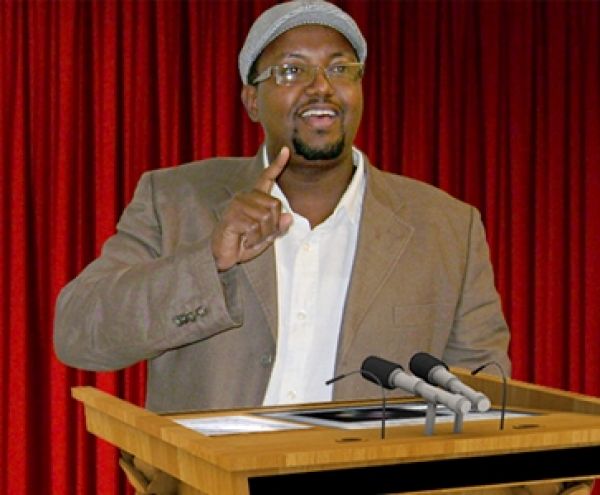
ADADO,
�Welcome to Adado,� he says, beaming. �Now, let`s bounce.�
Mr. Aden, 37, is part militia commander, part schoolteacher, part lawmaker, part engineer, part environmentalist, part king -- a mind-boggling combination of roles for anyone to play, let alone for a guy who dresses (and talks) like a rapper and recently moved from Minnesota to Somalia in an effort to build a local government.
Think of him as the accidental warlord. And a shard of hope. In less than a year, Mr. Aden, who was born in
With money channeled from fellow clansmen living in the
Even outsiders are noticing.
�When I landed here, I was taken aback, in a good way,� said Denise Brown, a United NationsWorld Food Program official who visited Adado in March. �I didn`t see what I usually see in
Mr. Aden does not get much help from the United Nations or the internationally supported transitional government of
Most of what Mr. Aden has accomplished he has accomplished on his own, in distinctly Somali fashion. His police officers carry rocket-propelled grenades. Parked in front of the police station are two enormous tanks.
�My Cadillacs,� Mr. Aden calls them.
But however playful or flamboyant he may come across, Mr. Aden seems to have hit upon a deeper truth. People want government, he says, even in
His experiment of building a small local government from the bottom up, relying on that one feature of Somali society that has bedeviled just about all national governance efforts to date -- the clan -- may have wider implications for the rest of the country, which seems to export trouble continuously, most recently in the form of pirates. Many pirates are actually from Mr. Aden`s area, and one pirate whose nom de guerre is Son of a Liar is building a huge house in Adado -- right behind the police station.
�I`d take these guys on, but I can`t right now because I don`t have the resources,� Mr. Aden said. �Besides, you can`t just wipe out a whole line of work for thousands of young men. If you take something away, you must replace it with something else. Otherwise, more problems.�
WHAT drove him to give up a comfy life with his wife, Shamso, and their five boys in
�When I first arrived, I was afraid,� he recalled. �I didn`t know how the people would react to me, if they would trust me. That first year I was focusing on muscle. Without muscle, you can`t do anything.�
Of course, there`s much about
�SportsCenter, Subway, AC, even winter,� he says.
But in a way he didn`t have a choice. He came to Adado last year for what he thought would be a few weeks, to help out with a killer drought. He organized water trucking and emergency food deliveries and channeled tens of thousands of dollars from middle class Somalis in the
Afterward, Adado`s elders, impressed by how fast he could work, turned to Mr. Aden and asked: want to be our leader?
�We needed a man of peace and he is from a peaceful place,
It did not hurt that Mr. Aden had a pipeline to overseas cash and a college degree from
People who have challenged his authority have paid the price. Last summer, his police officers shot to death four men who violently refused to vacate a piece of property that Mr. Aden`s administration ruled belonged to someone else.
�I knew there were outliers, people with their own rules,� he said. �I knew I had to challenge them, sooner or later.�
Nowadays, from Adado`s dusty town square, he hands down new laws, like a recent one saying that anyone who cuts down a live tree has to pay a fine of 100 camels.
The orderly refuge he has carved out has become a magnet for displaced families fleeing the relentless bloodletting in
Mr. Aden grew up in
But the war saw him. He was shot in the ankle by a stray bullet. Soon he packed up for
�It was hard for my wife and kids,� he said. �But I`m doing something big here, and they know that.�
HE spends his days in a large house in the center of town, where he has rigged up a small command center with a laptop, his iPhone and an Internet connection. As chairman of Himan and Heeb Administration, the province where Adado is located, he often meets with elders on his living room carpet, and he has had to straddle a delicate religious line, respecting the conservative Muslim culture here without coming across as phony. This spring, central
Mr. Aden seems to be a naturally upbeat person, but the one thing that drags him down is the drought. During a drive across the skinned landscape of his area a few months ago, he came upon a young man lying under a lean-to of sticks and blankets. The man was in bad shape, very thin, sweaty and empty-eyed. People said he had typhoid. And tuberculosis. And malaria.
Mr. Aden looked down at him and said he would pray. �There`s really nothing else I can do,� he said. �There`s no 911 out here.�
� Copyright 2009 The New York Times Company. All Rights Reserved.
Somalia`s buffer statelets want more bucks for their bang
Jean-Marc Mojon
September 01, 2010
As
Inspired by the success of the northern state of Somaliland that broke away in 1991, the dominant clans in central
In 2008, the Sufi movement Ahlu Sunna wal Jamaa took up arms to stem the territorial advance of the Al Qaeda-inspired Shebab but local leaders now feel their largely successful effort has been poorly rewarded.
Mohamed Aden �Tiiceey� returned from his adoptive
�We have stopped the Shebab. Himan and Heeb is doing its best to provide security yet we see nothing coming from the international community,� he told AFP during his latest lobbying visit to
�If you empower the people, they are going to help you but if they don`t have reason to hope... I already don`t have the energy I had two years ago and the world simply isn`t matching the effort I put into this region.�
North of Himan and Heeb lies Galmudug state, another self-proclaimed administration, where officials and residents also feel they have been abandoned by the international community.
�UN agencies are totally absent here, they are not fulfilling their duties,� said Habibo Kofro, the leader of Galmudug`s women`s group, at a recent meeting of elders in the regional capital Galkayo.
Galmudug`s minister for fisheries, ports and natural resources, Mohamed Ali Warsame, argues that waiting for stability to bring development ignores the fact that development is key to bringing about security.
And piracy, which has flourished along the coast of central
Combined anti-piracy naval operations in the Gulf of Aden and
�Sometimes I ask myself, does the international community honestly want to solve the problem? If it does, why misplace these huge resources?,� he said.
According to Warsame, piracy could be eradicated if one percent of the West`s anti-piracy naval expenditures was used on adequate onshore development.
In a recent article in World Affairs, US-based piracy expert Martin Murphy argued that the
The international community`s approach to Somalia`s woes recently has been to bet everything on a central government in
�The state department is... not looking at this problem with imagination,� he told AFP.
Murphy said
�We have to somehow build on whatever stability there is,� he said.
One Nairobi-based foreign expert stressed it was a mistake to consider the regional bottom-up and the centralised top-down approaches as mutually exclusive, rather than complementary.
Central Somalia`s self-styled administrations deserve support, he said.
But he also warned that any talk of a �building blocks� approach to
�Unfortunately we have a completely broken delivery machine... There is no engagement and until that changes, any new policy will produce more of the same.�
� Copyright Agence France-Presse, 2010 All reproduction and presentation rights reserved.
First formal conference to establish
Hiiraan Online
July 19, 2010
Sunday, July 19, 2010 (HOL): A preliminary conference organized and sponsored by Hawadle Clan of Hiiraan to formally pave the way for reconciliation and to establish a local administration in Hiiraan region of
The organizing Hawadle clan extended an invitation to all other native clans of the region for this historic conference, and representative of ten clans attended the conference with the exception of Gaaljecel and Badicade clans, it is yet not known why these two clans were absent from the conference, though they were extended similar invitation to attend the conference.
Speakers from the different clans made moving speeches, and all strongly expressed their intent and commitment to make reconciliation and peace among all the clans in the region and establish a local administration that reflects the compositions of the different clans in the region- one that advocates a proportional representation based on inclusively fair and justice; an administration that places the needs of the society in the region of Hiiraan first and effectively addresses post-conflict reconstruction and promotes development, peace and dialogue in the region.
All the speakers emphasized the importance of unity and inclusiveness among all the clans of the region, all speakers acknowledged �unity in diversity� as the way forward in realizing strong, prosperous Hiiraan state administration, and a solution to the current quandary in Somalia.
The chair of the Hawadle Diaspora Mr. Mohamud Abdi Gaab clearly denied rumors that he is the current president of Hiiraan state, and depicted such idea as farfetched rumors intended to weaken and create confusion between clans of the region in their pursuit to establish a local administration for all Hiiraanians. �As the chair of Hawadle Diaspora, for the last three months I was merely involved in organizing and reconciling the Hawadle sub-clans before embarking on reaching out to other clans in the region, and that hard work paved the way to hold this historic gathering today in Nairobi, Kenya� Mohamud said.
Other notable dignitaries who spoke at the conference included the chair of Hawadle Diaspora of Kenya Dr. Adde Duqow, Suldaan C/llahi Sheikh, Suldaan of Udeejeen clan, Ugaas Idow Isaaq, Ugaas of Jidle caln, Wabar Ibrahim Cusmaan Cali, Wabar of Jajeele clan, Sheikh Xasan Sheikh Cabdirashiid of Faqa Muxumed subclan Cabdullahi Cabdi Nuur of Faqi Cumar subclan, Col. Ibraahim Sheekh Xasan of Reer Awxasan subclan, Faarax Maxamed Cabdi of Makanne clan, Xuseen Maxamuud Xuseen of Sheekhaal clan.
Other speakers included Abdi husein Gedi and a Member of Somalia`s transitional Parliament Honorable Ahmed Omar Gagale.
In the end thirteen member committees were nominated to begin the groundwork for a more inclusive Hiiran State administration and to reach out other clans that were absent from this conference.
Names of the thirteen member committee are:
1- Sheekh Ibraahim Cusmaan Cali
2- Cabdirisaaq Maxmed Yusuf
3- Sheekh Xasan Sh. C/rashiid
4- Bishaar Idow Isaaq
5- Yaxye Cumar Maxmed
6- Cali Xaashi Cabdi
7- Prof. Ibrahim Sh. Xasan
8- Muxumed Bukhaar Maxamed
9- Buule Cabdi Cumar
10-Sheekh Muumin Faarax
11-Sheekh Abuukar Jumcaale
12-Cabdirisaaq Xaaji Muxumed
13-Faarx Maxamed Cabdi
Kenyan MP says creating new states in
BC Monitoring
August 24, 2010
Text of report by Abdulkarim Jimale entitled �Somali breakup may end war, says Maalim� published by privately-owned Kenyan daily newspaper The Star on 23 August
Creation of new states in
He was speaking during the inauguration of the new president of Hiiraanland state, a breakaway
Maalim said formation of new states in
�What you have just done is something you ought to have done previously.
Maalim told the Somalis that if the power is taken from the capital and divided into the other regions through the devolution system, war will come to an end.
�Somalis, we have made a new constitution and the important point is devolution which will unite all Kenyans,� he said.
He advised them to elect the person they think has leadership characters and forget clans and political backgrounds.
�Even if the person is from the minority clans, you must look at the positive side and elect him if he can develop the country and restore peace and stability,� he said. �You must stop talking about oil and other big projects and focus on how t solve the problems in your country.�
The state has only one province, which is controlled by the Al-Shabab.
The transitional federal charter of the
It says in Article 11: �The Transitional Federal Government of the
Puntland declared regional autonomy under Federal Somalia in 1998 and has been relatively stable since. The region has a functioning government, with a civil service and elections, and its own security forces.
Somaliland is a breakaway republic in northern
Source: The Star,
� 2010 The British Broadcasting Corporation. All Rights Reserved.


Waax and
|
|
 Sawirro Somaliya  |

|
GOVERNANCE
The Scourge and Hope of Somalia A New Book By Ismail Ali Ismail 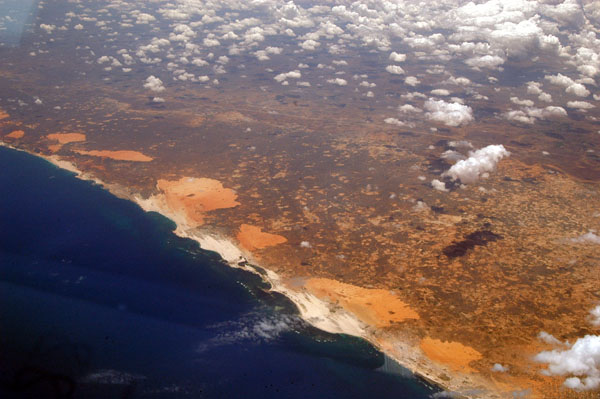 Which Way to the Sea, Please? By Nuraddin Farah Dhulkii Burcad-Badeedda .jpg) Budhcad Badeed Weli Qiil ma Leeyahay? 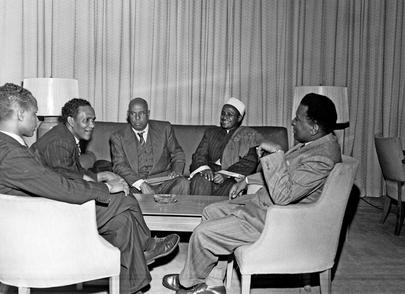 SYL LETTERS By A S Faamo |
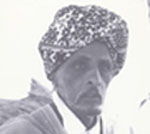 |
 |
© Copyright BiyoKulule Online All rights reserved�
Contact us [email protected] or [email protected] |

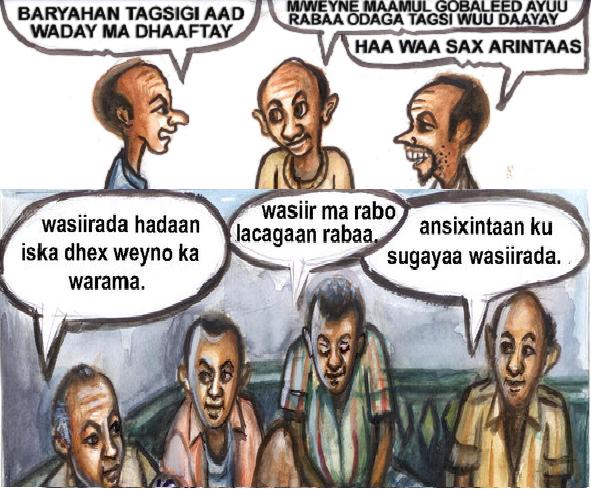
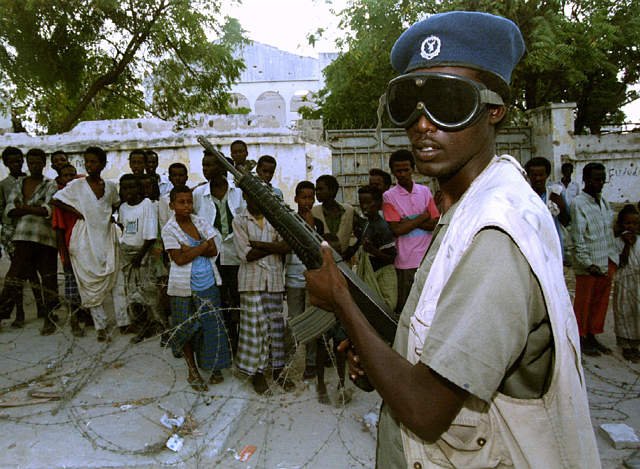


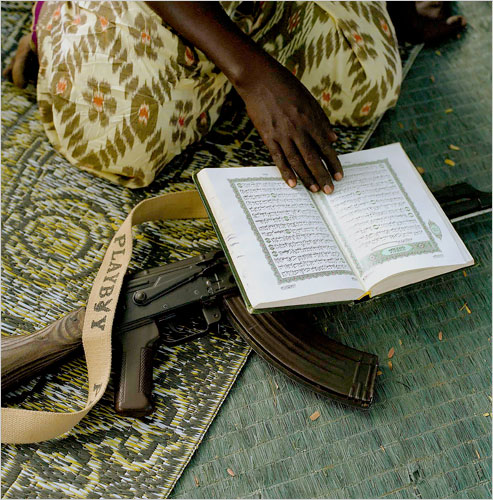

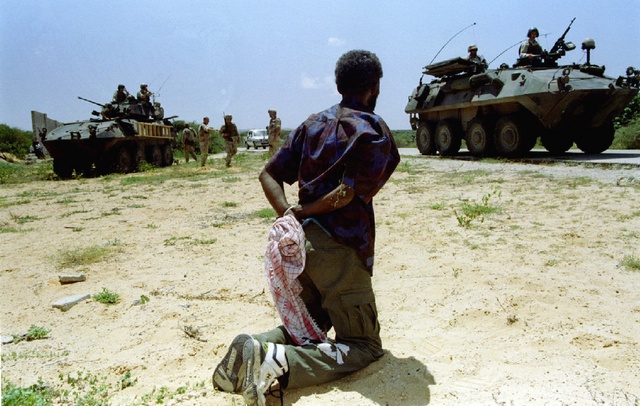
.jpg)




